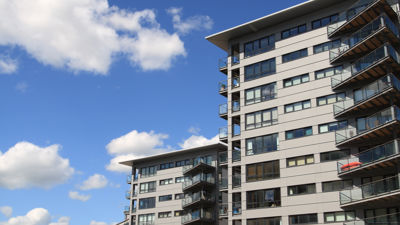Newsflash: Extra £3.5bn promised to tackle unsafe cladding |
|
Housing Secretary Robert Jenrick MP has announced “an exceptional intervention” promising that leaseholders in high-rise buildings above 18 metres will bear no costs for replacing dangerous cladding. It is to be the largest government investment in building safety. The highlights include:
Mr Jenrick said that insurance companies now need to step up and ensure premiums are correct as he suspects they have been exploiting leaseholders. "We are working with insurance sector and they do now need to take a more risk based proportionate approach”. Mr Jenrick confirmed that some developers have come forward to fix buildings, but many have not. Developers should still come forward and pay to fix. However, chasing developers, who may have been shells companies or be long gone is not a simple as some suggest. Mr Jenrick claims these measures combined will “remove unsafe cladding, provide certainty for leaseholders and make developers pay for mistakes of the past.” Shadow Secretary of State, Thangam Debbonaire MP responded for the Opposition, criticizing the length of time it has taken to remove unsafe cladding and repeating the Labour Party’s demand that an independent taskforce be set up to prioritize building remediation in accordance with risk, and to ensure that leaseholders in buildings smaller than eighteen meters are not forced to pay for remediation costs. The Shadow Secretary of State further demanded clarity on the terms of the loan scheme. IRPM, with ARMA, managing agents, cladding campaigners and other stakeholders have campaigned hard for this type of intervention. IRPM warmly welcomes the additional funding, which will go a good way to address the remediation of cladding in high rise buildings. However…
For IRPM’s Scottish members, Mr Jenrick robustly pointed out that funds sent to Scotland for remediation had not been issued by a Scottish government, which was holding onto the funds presently Felicity Buchan MP (Con) observed in response that the cost of meeting the above £50 cap of the loan scheme, added to the £5.1bn already announced might take the total government contribution into the mid-range of the £5-10bn demanded to fix the cladding crisis. Clive Betts MP, Chair of the Housing, Communities and Local Government Select Committee, observed the funds did not go to Housing Associations and Councils, who needed funds if they were to maintain existing and building new social housing. |


